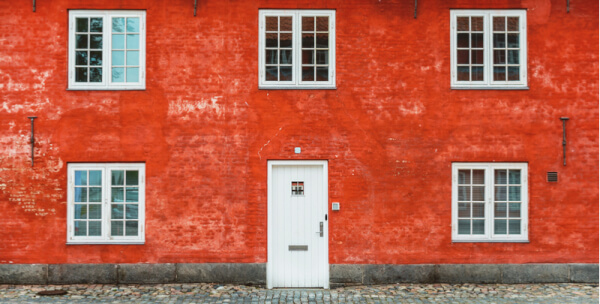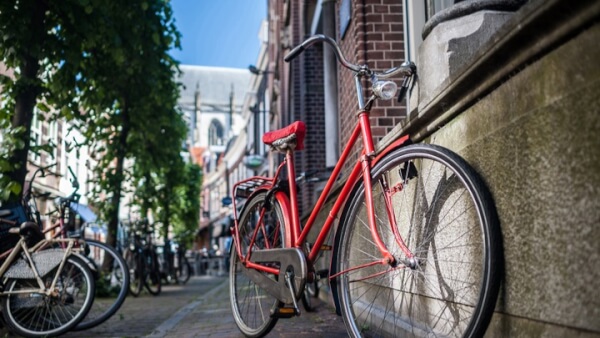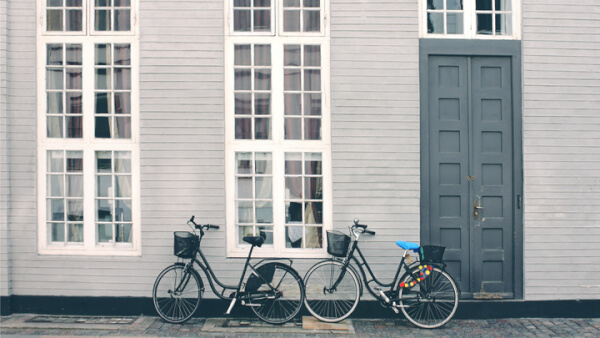How to move to Denmark: Step-by-step guide
People dream of moving to Denmark for its egalitarian society, progressive ideals and focus on design and aesthetics. In Denmark, you’ll find bakeries,...

Between insanely beautiful nature and architecture, one of the highest happiness indexes in the world, incredible workers’ benefits and the unique (and cozy!) concept of hygge, Denmark has always drawn a large number of expats.
Whether you’re planning to move to the Scandinavian country for work, to start a business or just to enjoy a more peaceful way of life, one of the toughest hurdles can be finding an apartment. Plus, living in Denmark isn’t known to be particularly inexpensive: with rent prices as high as 6,980.96 KR to live in a one bedroom apartment in any of the nation’s largest cities, it can feel important to get a good deal.
That being said, if you’re living outside of Copenhagen, Aarhus, Odense or another major city center, you can find rents as low as 2500 KR; it all depends on where you want to live.
This guide will walk you through the key things to know as you begin your apartment search in Denmark.
While it can be a good idea to work with a real estate agent or broker if you’re looking for something very specific or are searching in more rural areas, it’s very common in Denmark for landlords and sublets to post their listings online. Finding an apartment this way is advantageous in that you’ll be able to avoid high broker fees, however, it also means you could spend more time looking than you would with an agent who can show you multiple properties every day.
Real estate jargon can be tough to understand in your own language, let alone a foreign one. Here are some terms to keep in mind as you begin your search:
It’s fairly common for short-term rental properties in Denmark to come furnished, and it’s also possible to find long-term rentals that come with their furniture intact. That being said, furnished apartments tend to be the most sought after and therefore go the fastest, so if you find a furnished apartment you like it’s a good idea to pull the trigger quickly.
If you’d prefer an unfurnished apartment, you’re in luck; Denmark is known for beautiful, functional furniture design. If you’re on a budget, you won’t struggle to find an Ikea nearby either.
While foreigners don’t always have the best success negotiating their rent, it’s worth a try. With the market swing currently in favor of the renter, you may be able to wiggle down both your rent and your deposit. If you have a local friend who can handle the negotiation for you, however, you might have better luck.
Technically yes, but this will vary from case to case. Typically EU residents aren’t required to have a job in order to get an apartment in Denmark, however, savvy landlords usually ask for proof of income before allowing you to move in. For expats coming from outside of the EU, it’s pretty difficult to get a visa without a job, and you won’t be able to rent an apartment without proving that you’re legally allowed to reside in the country.
As such, it’s technically not necessary to have a job to rent an apartment, but being unemployed would present you with a range of hurdles.
All in all, tenants are fairly well protected in Denmark. For instance, landlords are required to perform their own, thorough inspection of the property which must be given to and approved by the tenant within two weeks of moving in. If the landlord fails to do so, the tenant’s deposit can not be held by the landlord when they move out, regardless of the state of the apartment.
Additionally, landlords are no longer allowed to instate “staircase” rent, in which your rates go up each year. Now, any rent increases are required to be in keeping with the consumer price index, and can’t be hiked unfairly.
Additionally, if there’s a dispute between you and your landlord a Council Rent Committee can be asked to step in and manage the conflict, which often helps both parties find reasonable resolutions. Overall, rental conditions in Denmark are good for both the renter and the landlord.
Generally, apartments in Denmark follow similar rules and regulations to those around the world. Tenants are usually required to get approval from the landlord to make any cosmetic changes, and any damage is the responsibility of the tenant. Tenants must be in good standing with their rent in order to continue residence. Additionally, most landlords in Denmark reserve the right to remove a tenant if they’re proving too disruptive to the neighbors. You should be familiar with the your rights as a tenant.
In order to live in an apartment, you’ll be required to sign a rental agreement and put down a deposit. Rental agreements are variable, but they typically cover the landlord’s rights for allowing you to remain in the apartment, your rights for breaking or maintaining the lease, whether the apartment can be sublet, and any other specific conditions related to the space itself. It’s a good idea to be familiar with a typical Danish rental agreement beforehand.
Deposits are typically paid alongside the first month’s rent, and usually match the cost of between one and three months rent. If a landlord asks you to pay a deposit that equals more than three months rent, that should raise a red flag for you as the renter. The deposit is typically returned to you at the time of move out, however, most landlords will keep at least a portion for “maintenance,” which is usually listed in your contract. Updates like repainting the walls and sanding the floors are very commonly taken out of your deposit.
What utilities you do and don’t need to pay for should always be listed in your rental agreement. It’s fairly common for tenants to pay their own electric and gas, however, sometimes those things are included in the price of rent.
The only thing you should have to sign before moving into an apartment is a rental agreement. Otherwise, you’ll just need to provide documentation, like your residency permit (which includes your Danish CPR number).
When you’re considering signing a rental contract, you should thoroughly read the document and make sure it contains everything you need to ensure your rights as a tenant. Some good things to look out for in your agreement include:
Yes. Usually you’ll be able to pay for your rent and utilities from your bank at home. That being said, it’s a good idea to use a tool like Transferwise to make sure you’re getting the real exchange rate and aren’t saddled with international transfer fees.
Some good sites to start your online apartment search in Denmark include:
As is the case anywhere, there are plenty of scammers out there who will take your money and run if you give them the chance. Some good ideas to make sure you don’t get taken for a ride include:
With that, you’re ready to start your search. Good luck!
*Please see terms of use and product availability for your region or visit Wise fees and pricing for the most up to date pricing and fee information.
This publication is provided for general information purposes and does not constitute legal, tax or other professional advice from Wise Payments Limited or its subsidiaries and its affiliates, and it is not intended as a substitute for obtaining advice from a financial advisor or any other professional.
We make no representations, warranties or guarantees, whether expressed or implied, that the content in the publication is accurate, complete or up to date.

People dream of moving to Denmark for its egalitarian society, progressive ideals and focus on design and aesthetics. In Denmark, you’ll find bakeries,...

Copenhagen is a world class city, with fantastic culture and a vibrant cosmopolitan outlook. The Danes are famed for having the best work life balance on the...

Greater Copenhagen covers the city of Copenhagen, and surrounding areas of Eastern Denmark and Southern Sweden. It aims to be the global leader in attracting...

Figures from the Danish Immigration Service show that more people than ever are moving to Denmark to live, study and work. They’re drawn by the stunning...